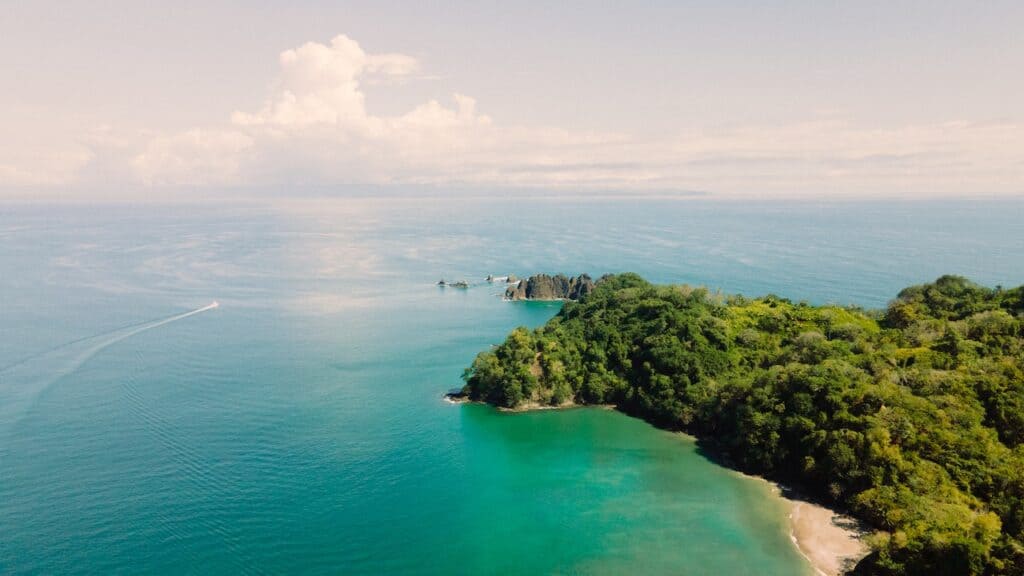Plug Costa Rica: Your Ultimate Guide To Sustainable Living In Paradise
Costa Rica has become a global beacon for sustainability, and the concept of "plug Costa Rica" is at the forefront of this movement. This small Central American country is rapidly transforming into a hub for eco-conscious living, renewable energy, and sustainable tourism. If you're considering joining the plug Costa Rica movement, you're about to discover a lifestyle that combines modern convenience with environmental responsibility.
As one of the most biodiverse countries in the world, Costa Rica offers an unparalleled opportunity to live in harmony with nature while contributing to global sustainability efforts. This article will explore everything you need to know about plugging into Costa Rica, from renewable energy initiatives to eco-friendly living practices.
Whether you're a digital nomad looking for a sustainable home base or an entrepreneur seeking green business opportunities, Costa Rica has something for everyone. Let's dive deeper into why Costa Rica is the perfect place to plug into a sustainable future.
Read also:Zayn Malik Tour 2024 Your Ultimate Guide To The Music Experience
Table of Contents
- Biography of Costa Rica's Sustainability Journey
- Renewable Energy in Costa Rica
- Eco-Tourism: A Key Driver of Sustainability
- Living in Costa Rica: The Sustainable Lifestyle
- Business Opportunities in the Green Economy
- Community Initiatives Supporting Sustainability
- Challenges Facing Sustainable Development
- Government Support for Sustainable Practices
- Future Prospects of Plug Costa Rica
- Conclusion: Why Plug Costa Rica Now?
Biography of Costa Rica's Sustainability Journey
Costa Rica's journey toward sustainability began decades ago, long before the term "plug Costa Rica" became popular. In the 1990s, the country introduced groundbreaking policies aimed at protecting its rich biodiversity and promoting renewable energy. By 2021, Costa Rica had achieved 99% reliance on renewable energy sources, making it a global leader in green energy.
One of the key milestones in Costa Rica's sustainability journey was the establishment of the Payment for Environmental Services (PES) program. This innovative initiative incentivized landowners to preserve forests and protect watersheds, resulting in significant reforestation efforts across the country.
Key Achievements in Sustainability
- 99% of electricity generated from renewable sources
- 25% of the country's land protected as national parks and reserves
- Leader in carbon neutrality initiatives
Costa Rica's commitment to sustainability has earned it international recognition and acclaim. The country serves as a model for other nations striving to achieve environmental balance and economic growth.
Renewable Energy in Costa Rica
When we talk about plug Costa Rica, renewable energy is at the heart of the conversation. Costa Rica has made remarkable strides in harnessing natural resources like hydroelectric, wind, solar, and geothermal energy. These efforts have not only reduced reliance on fossil fuels but also created new opportunities for innovation and investment.
According to the National Center for Energy Control (CENCE), Costa Rica produced over 99% of its electricity from renewable sources in 2021. This achievement highlights the country's dedication to clean energy solutions and positions it as a leader in the global energy transition.
Types of Renewable Energy in Costa Rica
- Hydroelectric power: 78% of total energy production
- Wind energy: 10% of total energy production
- Solar energy: 3% of total energy production
- Geothermal energy: 12% of total energy production
Investing in renewable energy infrastructure has also created thousands of jobs and stimulated economic growth. Costa Rica's success story offers valuable lessons for countries seeking to transition to sustainable energy systems.
Read also:Tattoos Sylvester Stallone A Comprehensive Look At The Iconic Tattoos Of A Hollywood Legend
Eco-Tourism: A Key Driver of Sustainability
Eco-tourism is one of the cornerstones of the plug Costa Rica movement. With its lush rainforests, stunning beaches, and diverse wildlife, Costa Rica attracts millions of visitors each year who are eager to experience its natural beauty. However, the country's approach to tourism goes beyond mere sightseeing—it focuses on responsible travel that benefits both the environment and local communities.
According to the Costa Rican Tourism Board (ICT), eco-tourism accounts for approximately 8% of the country's GDP. This sector supports conservation efforts, promotes cultural exchange, and provides economic opportunities for rural populations.
Benefits of Eco-Tourism
- Conservation of natural habitats
- Support for local economies
- Cultural preservation and education
- Promotion of sustainable practices
Costa Rica's commitment to eco-tourism aligns perfectly with the principles of plug Costa Rica, ensuring that visitors can enjoy the country's beauty without compromising its future.
Living in Costa Rica: The Sustainable Lifestyle
For those considering a move to Costa Rica, the concept of plug Costa Rica offers a compelling vision of sustainable living. From eco-friendly housing to organic farming, the country provides countless opportunities to live in harmony with nature while enjoying a high quality of life.
Costa Rica's "Pura Vida" lifestyle emphasizes simplicity, community, and connection to the natural world. Many residents embrace permaculture, renewable energy systems, and zero-waste practices as part of their daily routines.
Elements of Sustainable Living in Costa Rica
- Eco-friendly housing options
- Organic and locally sourced food
- Community-supported agriculture programs
- Access to renewable energy solutions
Living in Costa Rica allows individuals and families to reduce their carbon footprint while enjoying the benefits of modern amenities. This unique blend of sustainability and convenience makes the country an attractive destination for environmentally conscious expats.
Business Opportunities in the Green Economy
The plug Costa Rica movement has created numerous business opportunities in the green economy. Entrepreneurs from around the world are flocking to Costa Rica to launch eco-friendly ventures in sectors such as renewable energy, sustainable agriculture, and eco-tourism.
Government incentives, favorable tax policies, and a supportive regulatory environment make Costa Rica an ideal location for green businesses. According to the World Bank, Costa Rica ranks highly in terms of ease of doing business, particularly in the renewable energy sector.
Industries Driving the Green Economy
- Renewable energy development
- Eco-tourism and adventure travel
- Sustainable agriculture and permaculture
- Green technology and innovation
By investing in these industries, businesses can contribute to Costa Rica's sustainability goals while tapping into a growing market for eco-friendly products and services.
Community Initiatives Supporting Sustainability
At the grassroots level, communities across Costa Rica are actively participating in the plug Costa Rica movement. Local organizations, NGOs, and cooperatives are working together to promote sustainable practices and protect the environment.
One notable example is the "Cosecha de Agua" initiative, which encourages rural communities to implement rainwater harvesting systems. This program not only addresses water scarcity issues but also fosters a sense of community responsibility toward environmental stewardship.
Examples of Community Initiatives
- Rainwater harvesting programs
- Community gardens and urban farming
- Waste reduction and recycling projects
- Environmental education workshops
These grassroots efforts demonstrate the power of collective action in driving sustainable development. They also highlight the importance of involving local communities in decision-making processes related to environmental protection.
Challenges Facing Sustainable Development
While Costa Rica has made significant progress in sustainability, several challenges remain. Issues such as deforestation, plastic pollution, and climate change continue to threaten the country's delicate ecosystems. Addressing these challenges requires coordinated efforts from government agencies, private sector partners, and civil society organizations.
Deforestation remains a pressing concern, particularly in areas where agricultural expansion conflicts with conservation goals. To combat this issue, the government has implemented stricter regulations on land use and promoted alternative livelihoods for farmers.
Key Challenges and Solutions
- Deforestation: Strengthening enforcement of land-use regulations
- Plastic pollution: Promoting reusable products and recycling programs
- Climate change: Investing in climate-resilient infrastructure
By tackling these challenges head-on, Costa Rica can continue to lead the way in sustainable development while ensuring the long-term health of its ecosystems.
Government Support for Sustainable Practices
The Costa Rican government plays a critical role in supporting the plug Costa Rica movement through policies, programs, and partnerships. Initiatives such as the National Decarbonization Plan aim to transition the country to a carbon-neutral economy by 2050.
In addition to policy frameworks, the government provides financial incentives for businesses and individuals adopting sustainable practices. For example, tax breaks are available for companies investing in renewable energy projects, while subsidies support the installation of solar panels in residential areas.
Government Programs Promoting Sustainability
- National Decarbonization Plan
- Payment for Environmental Services (PES)
- Green Energy Incentives
Through these programs, the government demonstrates its commitment to fostering a sustainable future for all Costa Ricans.
Future Prospects of Plug Costa Rica
The future of plug Costa Rica looks promising, with continued advancements in renewable energy, eco-tourism, and sustainable living practices. As global awareness of climate change grows, Costa Rica's leadership in sustainability is likely to attract even more attention and investment.
Emerging technologies such as energy storage systems, smart grids, and electric vehicles will play a crucial role in shaping the future of Costa Rica's energy landscape. These innovations have the potential to further reduce reliance on fossil fuels and enhance the country's resilience to climate change.
Opportunities for Future Growth
- Expansion of renewable energy infrastructure
- Development of eco-friendly transportation solutions
- Increased investment in green technology
By embracing these opportunities, Costa Rica can solidify its position as a global leader in sustainable development while offering residents and visitors alike a truly remarkable way of life.
Conclusion: Why Plug Costa Rica Now?
In conclusion, the plug Costa Rica movement represents a unique opportunity to live sustainably in one of the most biodiverse and environmentally conscious countries in the world. From renewable energy initiatives to eco-tourism and sustainable living practices, Costa Rica offers countless ways to contribute to global sustainability efforts while enjoying a high quality of life.
We encourage readers to take action by exploring the possibilities of plug Costa Rica for themselves. Whether you're considering relocating, starting a business, or simply planning a vacation, Costa Rica has something to offer everyone committed to a sustainable future.
Feel free to leave your thoughts and questions in the comments section below, and don't forget to share this article with others who may be inspired by the plug Costa Rica movement. Together, we can create a brighter, greener future for generations to come.


